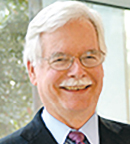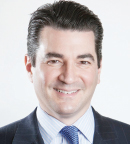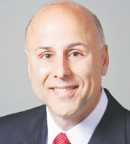
Clifford Goodman, PhD
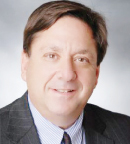
Ron Kline, MD
In a roundtable discussion moderated by Clifford Goodman, PhD, of The Lewin Group, Falls Church, Virginia, representatives of the patient advocacy community, public and private payers, large and small clinics, and the pharmaceutical industry did not always see eye to eye on what “value” means nor on how to deliver and sustain it. The multistakeholder panel concluded that whatever one’s perspective, it’s difficult to define value in cancer care. Ron Kline, MD, of the Centers for Medicare and Medicaid Services (CMS) and the Center for Medicare and Medicaid Innovation, posed this definition: “Value is outcome over cost. We create better value by asking, Can you accomplish the same goal at a lower cost?” Although this definition makes sense, ways to achieve it and how successful those efforts have been were debated by the participants. The discussion took place during the 2018 Annual Conference of the National Comprehensive Cancer Network® (NCCN®).
Oncologists Need Data
Michael N. Neuss, MD, of Vanderbilt-Ingram Cancer Center, Nashville, believes progress is being made, although, he added, there is still a need for better reporting of data, which will ultimately identify best practices and drive oncologists to change their prescribing practices. Participants agreed that both physicians and patients need more data to make wiser treatment choices. It’s critical for physicians to understand cost and effectiveness to drive good decision-making, said Daniel P. Mirda, MD, of the Association of Northern California Oncologists. “We are not businesspeople. We don’t know the cost factors, as we’re not directly involved in that.”
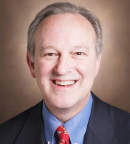
Michael N. Neuss, MD
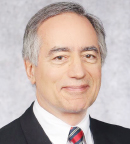
Daniel P. Mirda, MD
Dr. Mirda added that electronic medical records (EMRs) have made the landscape more complex, and, according to “most oncology practices” actually “interfere with the value they provide.” Dr. Neuss agreed: “We have to incorporate -measurement into our EMRs and into care at the time we’re -delivering care. It is preposterous that we haven’t integrated these fields into our EMRs after 5 or 10 years of using them.”
Use of data can be burdensome. “The problem is any measurement of the clinical factors of the patient takes extra time,” he said, and it is important to measure such factors at the time care is delivered and received. “It’s frustrating and inexplicable that EMR systems don’t incorporate collection of standard stage, status, comorbidity, and other key prognostic information. It is clear that these factors are understood in formulating care plans, and real-time structured data collection should be part of the documentation process,” added Dr. Neuss. If this can be done the whole system will be more efficient and by definition higher efficiency creates higher value Lee N. Newcomer, MD, MHA, a private consultant formerly with UnitedHealthcare, agreed on the need for real-time delivery of data for such information to be useful to clinicians.
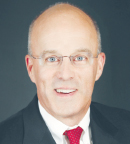
I do not begrudge a pharmaceutical firm a profit. What I’m asking for, as a capitalist, is a free market.— Lee N. Newcomer, MD, MHA
Tweet this quote
Randy Burkholder, of the Pharmaceutical Research and Manufacturers of America (PhRMA), said that “getting the right information into the hands of clinicians and patients at the point of decision-making” is “part of our commitment to better value in cancer care.” And these data should be “well grounded.” Better decision-support tools could help, he added.
Bhuvana Sagar, MD, Medical Director, Cigna, said that her organization is working to gather more data to tie to claims and provide more granular information to inform decision-making. “Data’s already out there,” she added, “so why can’t we make use of it?” She added that there are regimens that are therapeutically neutral but carry vastly different price tags. “Why can’t we use the information that’s in the public domain? We should be able to take advantage of it.”
Dr. Sagar said the NCCN is looking to release categories of preference and incorporate them into its decision support. “We (payers) need data on outcomes as well as costs to help determine the best care regimen for our customers,” she said. “Outcomes and cost data should also be shared with patients, so they can make informed decisions.”
Dr. Neuss called for a way for clinicians to better understand and measure costs within their practices. “Having a visual, an understanding of the costs associated with care, broken down by different categories of patients, is how we will identify best practices moving forward,” he predicted. Feedback in this context is impactful, he added. “When you give physicians their data, they change their behavior. Every doctor has a primary interest in taking better care of his or her patients. There’s been a lot of maligning of pharma and pharmaceutical costs, and doctors’ motivations for prescribing expensive drugs. But we’re embarrassed at the drug costs when you show us what they are, and if you show us our costs are higher than others, they’ll come down.”
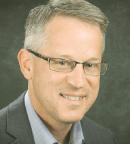
Randy Burkholder

Bhuvana Sagar, MD
However, reducing costs should not be done in exchange for sacrificing quality, Dr. Sagar emphasized. By collaborating—which is being done more and more—payers and providers can achieve a common goal of improving patient outcomes. “Together, we are designing programs that effectively align incentives with evidence-based, appropriate care to achieve better results,” she said. “Overall, we’re moving in the right direction and driving value…decreasing inpatient and emergency room hospitalizations and using palliative care earlier.”
Value for Some but Not for All
Mr. Burkholder agreed that value means more than reducing the cost of care: “It’s important to make sure we are talking about both the quality and the cost side of that equation…. What we mean by value is delivering better treatments for patients that extend their lives and reduce toxicity…. When you consider the gains we are making through better treatments relative to what we are spending, there is no doubt they represent significant value.”
However, other panelists countered that life-saving treatments have zero value for patients who cannot afford them. “Patients come to me and say they can’t afford their cancer therapy,” said Dr. Mirda. “Even when insurance covers it, their copay is insurmountable.” He added that the need to face the reality of financial toxicity for their patients is now “ubiquitous among oncologists…. The real goal is to decrease cost, because we cannot afford the current treatments at these prices, and physicians do not assign their patients to therapies based on price.”
Dr. Kline said it is up to oncologists to help patients understand their options and to respond to their financial challenges. “All of us want to give patients the best option…, but we have to look for second choices” because of patient financial burden, he said. The risk is the cost-effective option may offer “suboptimal care,” he added, which oncologists obviously want to avoid. Dr. Mirda agreed that some of the better therapeutic options cost more, “and we have to look for second choices that are less expensive.” Dr. Mirda continued: “I am always concerned about using ‘value’ when it is not defined beyond ‘better treatment relative to cost.’ What does better treatment mean, and do we have a way of choosing for each patient?”

Travis H. Bray, PhD
Patient advocate Travis H. Bray, PhD, of the Hereditary Colon Cancer Foundation, has not seen greater awareness of financial toxicity result in enough “value.” In fact, most cancer patients have taken “moderate to catastrophic” financial hits, he indicated. “There’s a bunch of money coming from one direction going somewhere else,” and although value-based care models are geared toward generating value, they are “aligned to generate value in the opposite direction from patients,” in his opinion.
How Much Should Manufacturers Profit?
Dr. Newcomer, an oncologist himself, said he “does not begrudge a pharmaceutical firm a profit. What I’m asking for, as a capitalist, is a free market,” he said. “Good old-fashioned market forces” that allow competition will benefit patients. In an earlier keynote presentation at the conference, Dr. Newcomer advocated for the elimination of the mandate that requires CMS and private insurers to cover all approved cancer drugs. Under this mandate, payers have little room to negotiate for lower prices from manufacturers, he argued.
To this point, Mr. Burkholder responded: “You [payers] have [negotiation] tools at your disposal,” and he called the mandate’s provisions “basic protections.” He further maintained that, in terms of the improvements that oncology drugs have provided, the prices charged by manufacturers are “absolutely” appropriate. “In terms of total death rates,” he said, new medicines are providing commensurate value. “You have to look at the whole system.”
Dr. Kline, who has helped develop value-based pilot projects within CMS, said the issue is more complicated. “We need to have a free market, so you have access to multiple drugs. But from the standpoint of the Oncology Care Model (OCM), physicians have to care” about prescribing drugs that are expensive without delivering substantial benefits. “I think what OCM does is set the fee-for-service model on its head. OCM says look for value and take good care of your patients. Look for when you can accomplish the same goal at a higher value.”
Dr. Kline maintained that through “thoughtful use of resources,” appropriate therapy can be provided. And under OCM, “If you provide high-value care, we’re going to give you a bonus. All we’re doing is asking people to think a little bit,” he said.
Dr. Sagar agreed that the oncology world needs to look beyond drug prices alone to assess the overall appropriateness of care, in a value-based model. “We’ve focused a lot of discussion on drug prices, and I think it needs to go beyond that,” he said. ■
DISCLOSURE: Drs. Goodman, Kline, Neuss, Newcomer, Sagar, and Bray and Mr. Burkholder reported no conflicts of interest. Dr. Mirda is on the advisory board and is a consultant for Lilly, Celgene, Genentech, Teva, and Bristol-Myers Squibb.

